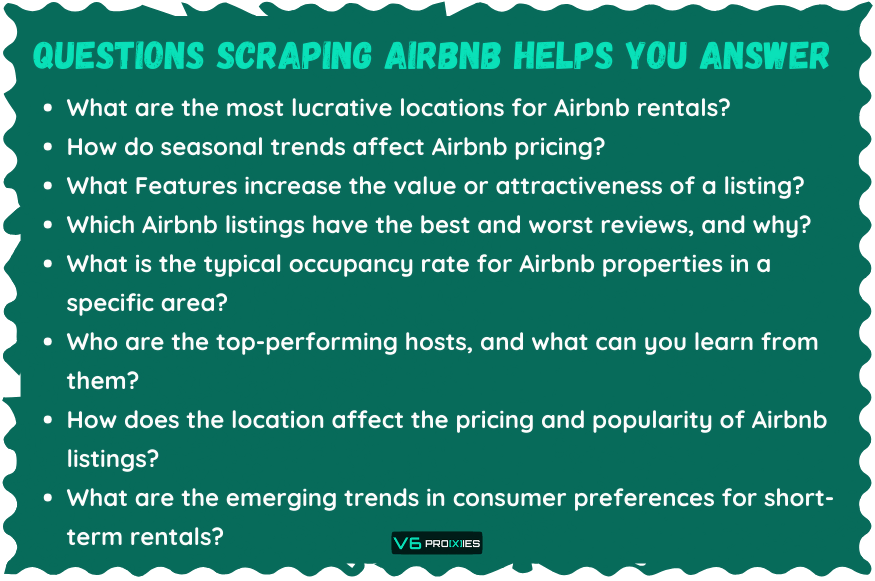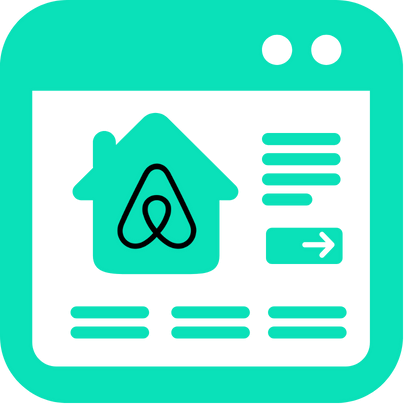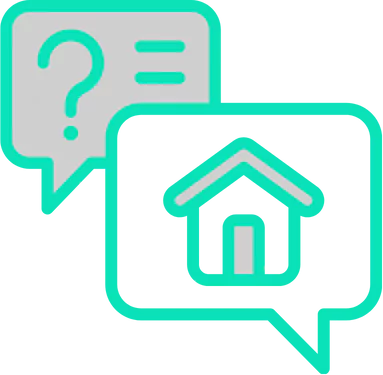Ever wondered how to tap into the treasure of data available on Airbnb? Whether you’re eyeing the competitive edge in the vacation rental market or just curious about trends, scraping Airbnb data can unlock a world of insights. You can use these info for your own Airbnb business or use the scraped data to make money.
This guide isn’t just about fetching data—it’s about doing it smartly and efficiently using Python, the go-to tool for data enthusiasts.
We’re not just going to walk you through the basics; we’ll go deep into the mechanics of how to scrape Airbnb data from the initial setup to advanced data extraction techniques.
In previous guides, we covered Google Search Scraping with python, Instagram Scraping, Facebook Scraping, WhatsApp Scraping, Scraping Amazon, and LinkedIn Scraping. Today: It’s the Airbnb scraping turn.
Table of Contents
1. Understanding What Airbnb Data to Scrape
So, you’ve decided to scrape Airbnb—great choice! Airbnb is not just about rooms and dates; it’s a rich ecosystem brimming with data that can offer deep insights. Whether you’re analyzing market trends, comparing pricing strategies, evaluating host performances, or exploring lucrative investment opportunities, knowing what data to target is the first crucial step.

Key Data Points You Can Scrape From Airbnb
Here’s what savvy data scrapers usually look for:
- Listings: Get a clear picture of the details of each Airbnb listing—where it’s located, how it’s priced, what amenities it offers, and how guests have rated it.
- Pricing Information: Track how prices fluctuate based on seasons, events, or even days of the week. This data is gold for predicting future pricing behaviors and identifying investment opportunities.
- Airbnb Reviews: Sentiment analysis on guest reviews can unveil great insifghts from the feedback about the location, cleanliness, and host responsiveness.
- Host Information: Understanding who the hosts are, their response rates, and their overall ratings can provide insights into the quality and reliability of listings.
- Occupancy Rates: How often is a listing booked? This data can help assess demand, optimize pricing strategies, and pinpoint high-demand areas that could be profitable for new listings or investments.
- Geographical Distribution: Analyze where properties are clustered and how this affects pricing and availability. This can guide decisions on where to invest in real estate or where to expand rental offerings.
If you’re not directly involved in the Airbnb business but still want to capitalize on this data, You can use these insights to make money by offering consulting services, create targeted real estate apps or platforms, or even start a blog providing analysis and trends. See full list of profitable web scraping project examples in our guide.
2. How To Scrape Airbnb Data With Python?
Ready to transform raw Airbnb listings into actionable insights? This section will guide you through the technical maze of setting up, coding, and executing a Python scraper tailored for Airbnb.
Tools and Technologies for Scraping Airbnb
To kickstart your Airbnb scraping project, you’ll need to equip yourself with the right tools and technologies. Python offers a robust suite of libraries tailored for web scraping tasks, making it the preferred choice for developers.
A. Python and Libraries:
- BeautifulSoup: Ideal for beginners, BeautifulSoup allows for easy extraction of data from HTML and XML files.
- Scrapy: This open-source framework is not just powerful but also provides built-in support for extracting data, managing requests, and handling a variety of media types.
- Selenium: For dynamic web pages that require interaction (like clicking or scrolling), Selenium can automate web browsers to mimic real user actions.
B. Web Scraping Proxies
To avoid IP bans and manage large scale data scraping, using proxies for web scraping is crucial. They help in routing your requests through different IP addresses, maintaining anonymity and reducing the risk of detection.

Setting Up Your Python Environment for Scraping
Preparing your environment is the foundational step in your scraping journey. A properly configured setup ensures that your scraping process runs smoothly.
Installation of Python and Libraries:
- Install Python: Download and install Python from the official Python website. Ensure you select the version that suits your operating system.
- Install Libraries: Use Python’s package manager, pip, to install necessary libraries. You can install BeautifulSoup, Scrapy, and Selenium using the following commands:
pip install beautifulsoup4
pip install Scrapy
pip install selenium
Python Configuration Tips:
- Virtual Environments: Consider setting up a virtual environment using
venvorcondato manage dependencies specific to your project without affecting global Python settings. - IDE Setup: Configure your Integrated Development Environment (IDE) like PyCharm or VSCode for better code management and debugging capabilities.
Step-by-Step Guide to Scraping Airbnb Data
With your tools ready and environment set, let’s dive into the step-by-step process of scraping Airbnb data.
A. Accessing Airbnb:
- URL Selection: Start by identifying the Airbnb URL you wish to scrape. For example, if you want to scrape listings from a specific location, navigate to that page.
- Inspect the Page: Use browser tools like Chrome Developer Tools to inspect the HTML structure of the page to identify the tags containing the data you need.
B. Writing the Scraper:
- Setup BeautifulSoup: Initialize BeautifulSoup with the page source you obtained from your requests or Selenium.
from bs4 import BeautifulSoup
import requestsurl = ‘your_airbnb_url_here’
response = requests.get(url)
soup = BeautifulSoup(response.text, ‘html.parser’)
- Parse Data: Loop through the HTML elements and extract necessary data points like:
- Title
- Description
- Beds
- Rating
- Price
- Date Range
- URL
C. Handling Pagination and Data Storage:
- Pagination: Handle pagination by automating the process of fetching subsequent pages either by manipulating the URL or interacting with page controls using Selenium.
- Data Storage: Save the scraped data into a structured format like CSV, JSON, or a database. Use Python’s
csvmodule or thepandaslibrary for easier data handling.
3. Testing and Debugging Your Scraper
Once you’ve built your Airbnb scraper, the next crucial step is to test and debug it to ensure its reliability and efficiency. This phase is vital because even a minor error in your code can lead to incorrect data extraction, or worse, your IP getting blocked. Testing and debugging refine your scraper, enhancing its ability to handle real-world complexities and variability of web data.
Common Issues and Solutions
- Login Requirement Issues: Sometimes, scraping Airbnb may require handling login mechanisms. Solution: Use Selenium to automate login by entering credentials and navigating through the login process programmatically.
- Dynamic Content Loading: Airbnb pages often load content dynamically, which BeautifulSoup alone can’t handle. Solution: Integrate Selenium to manage dynamic interactions or use Scrapy’s JavaScript rendering capabilities.
- IP Blocking: Frequent requests from the same IP address can lead to blocks. Solution: Implement rotating scraping proxies and user agents to mimic genuine user behavior and avoid detection.
- Data Parsing Errors: Incorrect parsing leads to data loss or errors. Solution: Regularly update your parsing logic to adapt to changes in Airbnb’s HTML structure. Use error handling in your code to manage unexpected inputs without crashing.
Performance Optimization
- Concurrency: Utilize Scrapy’s ability to handle requests asynchronously or use threading in Python to make multiple requests in parallel, reducing the time spent waiting for responses.
- Caching: Implement caching strategies to store and reuse previously fetched data, minimizing the need to re-scrape information and reducing the load on Airbnb’s servers.
- Efficient XPath/Selectors: Optimize how you select elements from the page. Efficient selectors speed up the extraction process and reduce computational load.
- Resource Management: Ensure your scraper manages system resources efficiently, especially when running on less powerful hardware. Monitor and adjust memory usage and processor time.
4. Is It Legal To Scrape Airbnb
Web scraping walks a fine line between gathering publicly available information and potentially infringing on terms of service or privacy rights. Understanding these aspects helps ensure that your Airbnb data collection methods are both responsible and compliant:
- Prohibited Activities: Airbnb’s Terms of Service typically include clauses that prohibit the scraping of their website. For instance, they may specify that you cannot access the site or its services using automated means without their consent.
- Intellectual Property: The terms also protect Airbnb’s intellectual property, which includes the design, layout, and content of their listings. It’s crucial to note that while data might be publicly viewable, it doesn’t mean it’s free to use.
5. FAQs

Does Airbnb Block Scraping?
Yes, Airbnb may block scraping activities. Their system is designed to detect and prevent automated access, including scraping. If the site detects activity that appears to be automated scraping, it might temporarily block the IP address or take more permanent measures against the user.
Is There an Airbnb API?
Airbnb does offer an API, but it’s primarily available to approved partners and not for public general use. The API is not for scraping. It allows for integration with Airbnb’s platform for managing listings, bookings, and user interactions under specific terms and conditions.
Does Airbnb Sell Data?
Airbnb does not publicly disclose selling personal data. However, they share aggregated data and trends with partners and in their economic reports, which do not include personally identifiable information. The use and sharing of data are covered under their privacy policy.
Is Airbnb Data Safe?
Airbnb employs various security measures to protect the data it collects. This includes technical, physical, and administrative protections designed to safeguard the integrity and privacy of user data. However, like any online platform, it’s not entirely immune to breaches or security vulnerabilities.
How Long Does Airbnb Keep Data?
Airbnb retains personal data as long as necessary to fulfill the purposes for which it was collected, including for the duration of their business relationship with you, as required by legal obligations, or to resolve disputes. The specifics can vary depending on the type of data and legal requirements.
What Data Does Airbnb Collect?
Airbnb collects a range of data to operate effectively and provide services. This includes user-provided information such as names, email addresses, and payment information; data generated during use of the services like search, booking, and communication history; and data from third parties, such as identity verification services or financial service providers.
Related articles:
Amazon MTurk Account Suspension (Reasons & Solutions) (2024)
- Tags:
- how to scrape, python, web scraping




